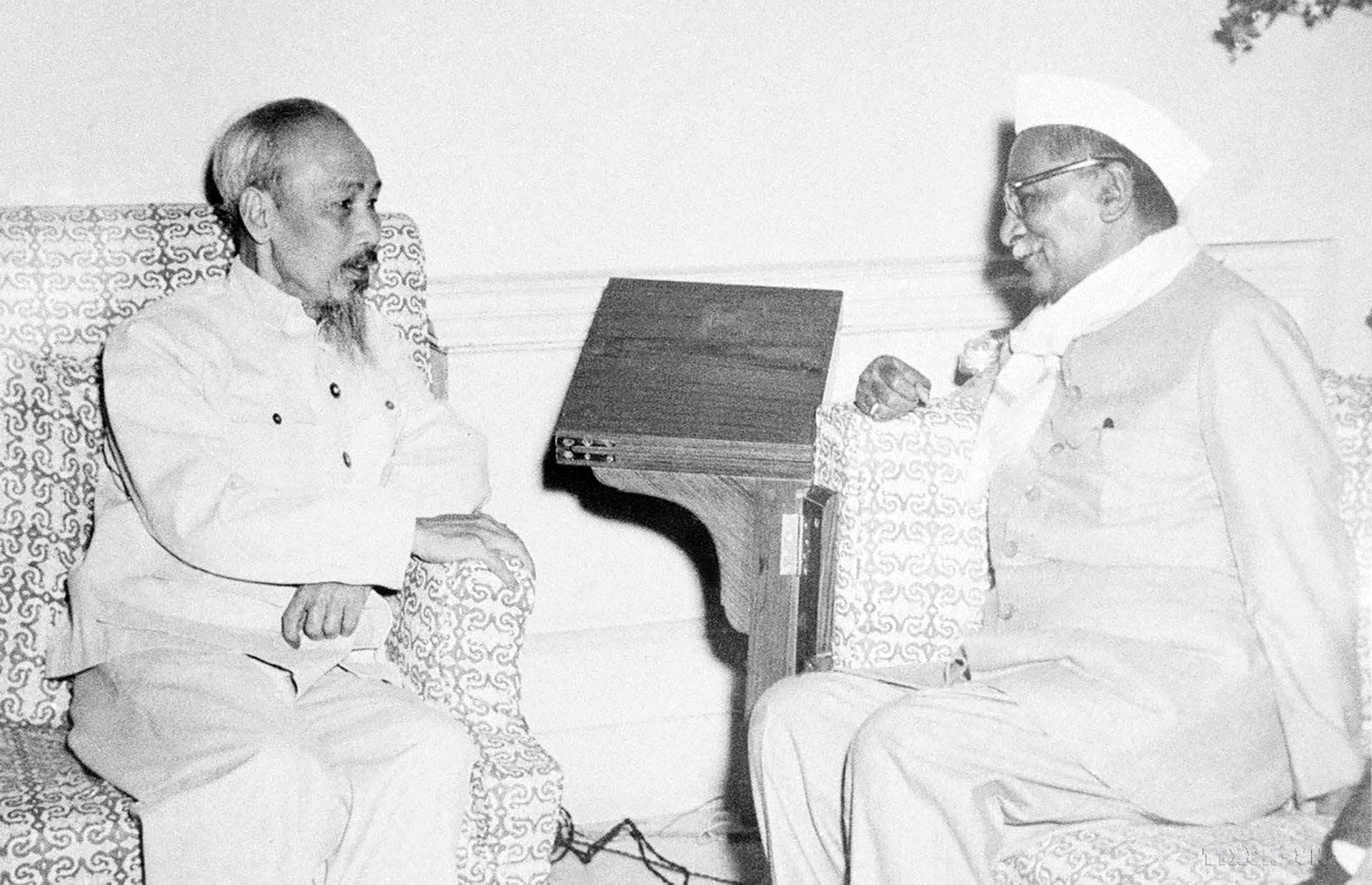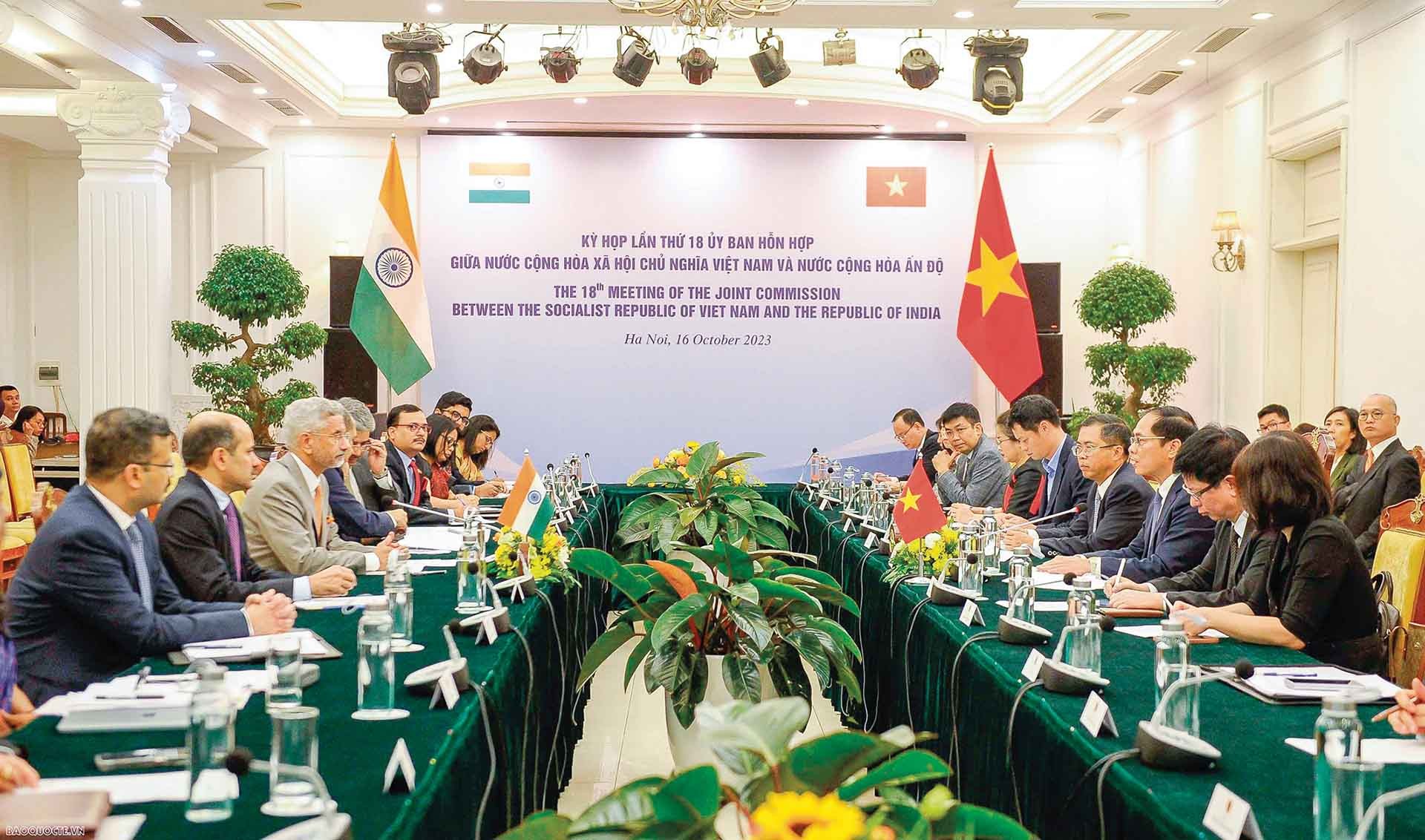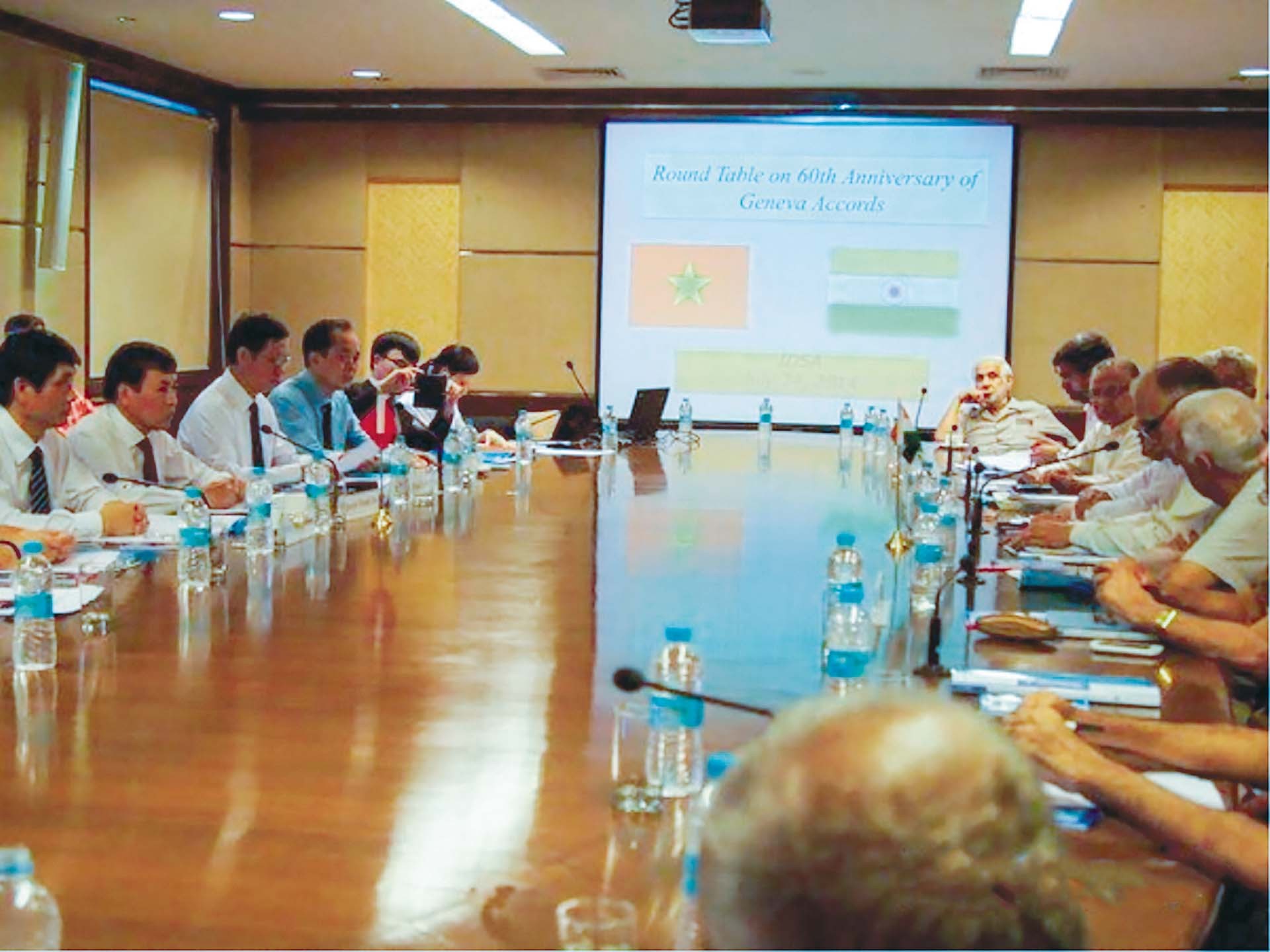
Imperatives of the Geneva Accord in shaping the India - Vietnam Relation
Latest
 |
| President Ho Chi Minh met Indian President Rajendra Prasad during a friendship visit to India, May 2, 1958. (Source: VNA) |
This year would mark seventy years since the Geneva Conference, the outcome of which resulted in a major shift and victory against colonialism and imperialism for the Indochinese states. India while not a member at the historic Geneva Conference was an active participant who helped find the necessary formula to arrive at an agreement. Prior to its own independence, India viewed its freedom struggle as part and parcel of the wider struggles of other nations fighting against colonial rule. Given the deep civilizational and historical connect that India shared with the Indochinese states, it repeatedly expressed solidarity towards their struggle for independence. This was clearly evident through India’s extended political support to Vietnam in particular, during its protracted liberation struggle. India presiding over the international commission established through the Geneva Agreement to facilitate the peace process in Vietnam further elevated contemporary relations.
An Influential Observer
At a Conference of Foreign Ministers of the United States, France, the United Kingdom, and the Soviet Union, held in Berlin from January 25 to February 18, 1954, it was decided in effect that two Conferences should be held in Geneva from April 26; one on Korea and one on Indochina. India also took an active interest in the developments in Indochina since it has implication on its security. India welcomed the Berlin conference as it was an attempt to solve the problem through negotiations rather than by military means. Speaking at the Indian parliament in April 1954, Prime Minister Nehru appealed for a cease-fire and how the conflict required “… efforts to avert an extension and intensification..” while promoting trends that might lead to a settlement. India proposed a six-point plan that called for an immediate cease-fire; guaranteed full independence of all the Indochina states; direct negotiation between France, the Associate States, and Viet Minh; and non-interference from outside under the UN monitoring. Hoang Van Hoan, a member of the Vietminh delegation to the Geneva Conference welcomed Nehru’s proposal. Encouraged by the favorable response Nehru took further measures to promote peace and negotiations, needed to help de-escalate the international tension.
India called for the Colombo Conference at Kandy which met on April 28, 1954, and ended on 2 May. The Prime Ministers of five Asian nations – Myanmar (then Burma), Sri Lanka (then Ceylon), India, Indonesia, and Pakistan – met to exchange views and discuss problems of common interest and concerns including on Indochina. In this regard, there was complete agreement on one point, that colonialism had to be removed from Indochina. The communique issued on 2 May with regards to the Indochina question, welcomed the earnest attempts being made at Geneva to find a solution to the problem through negotiations, and hoped that the deliberation would bring about a speedy termination of the conflict and restoration of peace.
 |
| Vietnamese Minister of Foreign Affairs Bui Thanh Son and his Indian counterpart Subrahmanyam Jaishankar co-chaired the 18th meeting of the Vietnam - India Joint Committee for Economic, Trade, Science and Technology Cooperation in Hanoi on October 16, 2023. (Source: TG&VN) |
They considered that the solution to the problem of Indochina required that an agreement on a cease-fire should be reached without delay. The Prime Ministers felt that the solution to the problem required direct negotiations between the parties principally concerned, namely France, the three Associated States of Indochina, and Viet Minh, as well as other parties invited by agreement. India’s plan being approved at the Colombo Conference prepared it for a role in the Geneva Conference on Indochina which began in April 1954. India was not an invitee but participated in the Geneva Conference as an observer when on May 22, V K Krishna Menon arrived in Geneva for informal talks.
The Conference opened on April 26, 1954, and by May 8 when the attention turned to discuss the problems in Indochina, the Vietnamese nationalist forces on May 7, had defeated the French Expeditionary Corps in the Far East at Dien Bien Phu. India became an influential attendant at the Geneva Conference and through its diplomatic efforts played a crucial role as a connecting link among the various delegations. After weeks of negotiation at the eighth and last plenary session on Indochina held on 21 July helped restore peace with three separate agreements – one for each of the Indochinese states.
Implications on the India-Vietnam Relation
The Geneva Conference recognized Vietnam as a single state and established two agreements. The first dated July 20 provided a cession of hostilities; and the second, dated July 21, was called the Final Declaration of the Geneva Conference. In the Agreement on the Cessation of Hostilities in Vietnam, signed by France and the Democratic Republic of Vietnam, the two parties agreed to an immediate cease-fire, the independence of Vietnam, and the temporary division of the country into two zones separated by a demilitarized zone at the seventeenth parallel. The two parties also agreed to prohibit the introduction of additional foreign military personnel into Vietnam, to refrain from retaliating against former enemy combatants, and to hold general elections within two years to set up a government for a unified Vietnam. To supervise the implementation of these provisions and monitor violations of them, the settlement created a Joint Commission for Vietnam with representatives from France and the DRV. Further, for effective implementation, the Accord created a machinery called the International Supervisory Commission (ISC). Article 34 of the Vietnam Agreement provided for the establishment of the ISC to supervise the implementation of the accords. The ISC composed of representatives from Canada, Poland, and India which also presided over the commission.
 |
| Conference to celebrate the 60th anniversary of the signing of the Geneva Agreement jointly organized by the Vietnamese Embassy in India and the Manohar Parrikar Institute for Defense Studies and Analyses (IDSA), July 2014. (Source; VNA) |
Amongst the Indochina states, Vietnam was the bigger and strategically more important player and India always admired the indomitable spirit of the Vietnamese people. Indian leaders welcomed the establishment of the DRV in 1945. Given their historical roots in the common struggle for independence from foreign rule, India actively supported Vietnam’s resolve to earn liberation. India maintained consulate-level relations with both DRV and South Vietnam and later established full diplomatic relations with Vietnam on January 7, 1972. Prime Minister Jawaharlal Nehru's historic visit to Hanoi in October 1954, after the Geneva Accord followed by President Ho Chi Minh's visit to India in February 1958 opened a new chapter in the relations. As a member of the ISC, India continued to express concerns and called for an early resolution of the Vietnam conflict within the framework of the Geneva Accord. India continued to support for a one-Vietnam policy as stated by its foreign minister Swaran Singh in the Lok Sabha on April 26, 1972. India welcomed Vietnam’s victory and recognized its unification in 1976, this helped the bilateral relations acquire a firm new footing.
After the establishment of full diplomatic relations and particularly after the reunification of Vietnam, there has been deeper cooperation between the two countries to build a comprehensive, and long-term partnership. Further, the ‘open door’ reforms launched by Vietnam in 1986 and the ‘look east’ policy announced by India in 1994; transformed both nations’ foreign policy and provided opportunities to further strengthen their bilateral relations. The central tenets of the relation remain towards promoting peace, stability, cooperation and development in the region and beyond.
The relations has continued to evolve factoring in the changing geo-political and geo-economic environment. The bilateral partnership based on our shared and sustained cooperation has enabled the establishment of the Strategic Partnership in 2007 which was elevated to a Comprehensive Strategic Partnership (CSP) in September 2016. Bilateral relations are thriving in all areas of cooperation and both India and Vietnam remain committed to an open, efficient, and rules based regional architecture. Today, the partnership encompasses trade and investment, energy cooperation, security and defense, developmental assistance, political engagement, and people-to-people contact. There is also a focus on greater cooperation based on development of new technologies, innovation, and digitization to deliver good governance and people empowerment.
Given the historical linkages and common struggle against colonialism, both nations have often in the past found themselves on the same side through their active participation in the Non-Aligned Movement, the Afro-Asian People’s Solidarity Organisation, and their unwavering emphasis on peace in Vietnam on the basis of the fulfillment of the Geneva Agreement. This proactive participation through various multilateral architectures and remaining committed to the Geneva Accord showed the commonality of principles shared between the two nations. This past experience has helped solidify the future of the India-Vietnam relations.












